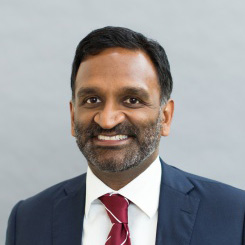I’ve just returned to Rome following our Lisbon conference on Catholic Social Teaching, Free Enterprise and Poverty. Judging from the crowded auditorium and the lively comments from the audience, it was a very successful event. Here I’ll mention a few of my personal highlights from the event:
— Bishop Filippo Santoro gave an excellent presentation on the errors of using income transfers to achieve a more equal society, and especially the dependency the poor develop on the state.
— Professor Raúl Diniz reminded us that there is no particularly “Catholic” model of economics and that more Catholics should heed the advice of free-market or “liberal” economics in our time.
— Fr. João Seabra offered a spirited defense of Pope Pius XI’s anti-communism, which sadly still needs to be recalled twenty years after the fall of the Soviet Union.
— Paul Atkins explained to our Portuguese audience how decades of well-intentioned policies carried out by the US government to promote home ownership lead to the recent financial crisis and the lessons concerning regulation that should be drawn by developing countries.
— Samuel Grottis spoke about how successful businesses are not just profit-making but transformational.
— Professor João César das Neves exploded the myths surrounding the Chinese economy, calling it a seductive form of Marxism. (Apparently his PowerPoint presentation was quite a hit as well, but I couldn’t see it from where I was seated as the moderator of his panel. Perhaps the good professor will kindly share it with us on the PowerBlog.
There were many other intriguing points raised by the speakers and during the Q&A session about the challenges of capitalism to Christianity and the conference could have easily lasted another day or two. The viewing of the Poverty Cure trailer was especially well received.
On a side note, the Saturday before the conference, there was a large protest of public-sector employees against the Portuguese government’s austerity plans. From what I could tell from my meanderings through the streets of Lisbon that day, even the slightest reduction in benefits will meet with stiff resistance from the public-sector unions, which should put paid to the idea that government workers are somehow more concerned with the common good than private-sector workers.
All in all, it was an auspicious beginning for what many hope will be a continuing fruitful relationship between the Institute for Political Studies at the Catholic University of Portugal and the Acton Institute. Mui obrigrado to all who made this a great conference.

